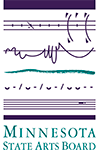
Photo by niu niu
Are elections entirely free of errors? No.
Does every single person do the correct thing when voting? No.
Humans design elections, humans run elections, and humans participate in them. So people will make mistakes. We must accept a certain level of error in our elections because they are run by humans.
After the 2020 election a group of reporters went in search of voter fraud. They interviewed 340 election officials, focusing on the six states where Trump claimed he won. Out of 25 million votes cast in those states, they found 475 possible instances of fraud. There were felons released from prison who didn’t realize they couldn’t vote (states all have different laws regarding felons.) The system caught up with them.
There was the woman who submitted a mail ballot on behalf of her mother, who’d died a month before the election. The system caught up with her. A woman whose husband had died just before the election was confused about what to do, so she sent in his ballot. The system caught up with her. Some people vote by mail, forget they did this, so try to vote in person on Election Day. These people will be stopped before they can vote, unless the humans working the election make mistakes and let them through. The computerized part of the election system will catch them eventually.
Some try to vote illegally. A man in PA tried to vote in the name of his deceased mother because he thought Trump needed the extra vote. Two people in MI were charged with fraud as they tried to cast ballots in their daughters’ names. Another woman tried to vote on behalf of her partner, who’d died five months before the election.
How widespread is this fraud? Check out the Heritage Foundation website (this is a conservative think tank) that announces they have found 1365 examples of verified fraud…in the entire country…in the last forty years….
I added up the voter turnout in general elections from 1984 to 2020. In those 10 presidential elections, US citizens cast over 1.16 billion votes.. If you do the math, this means that the percentage of attempted fraudulent votes was .000001176.
Do humans make mistakes? Yes.
Does fraud exist? Yes.
Is there enough fraud to affect the outcome of any election? No.
The dedicated people running our elections have gotten better and better at catching those people. So when election officials (many of them Republican) tell the country that there is very little voter fraud, we need to believe them.


4 Responses
Refreshing!
Great blog with some excellent stats. Thanks for keeping us informed on how elections work. Some day the great lie will die. Just not sure when. We were driving in NM and saw a sign that said something like this: Perpetuating the Great Lie will Destroy our Democracy. We were driving 75 mph so couldn’t get a pic in time to get the exact wording. But I totally agree.
Arizona is especially full of people spreading lies, so I’m glad to hear that at least someone in NM is paying attention. There are some who say that this attack on democracy is on purpose, that some would rather have a ‘strongman’ in control who makes all our decisions for us. Now that’s a scary thought….
I am of the opinion that those spreading the lie don’t truly understand what they are doing. They are blindly following a con man and Q.